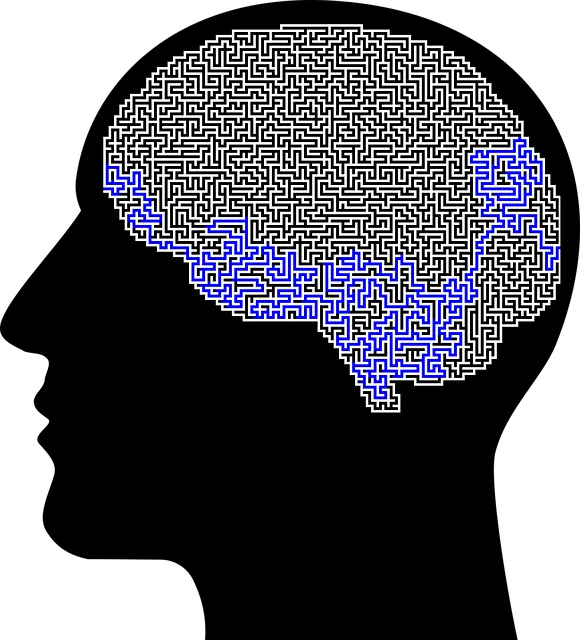The Kaiser Permanente mental health number Longmont offers 24/7 crisis intervention services with trained professionals using evidence-based practices like cognitive-behavioral therapy, self-awareness exercises, and compassion cultivation. They prioritize clear communication, empathetic listening, and cultural sensitivity to create safe spaces for expression and stabilize individuals in distress. Following initial assessment and stabilization, ongoing support includes individual and group therapy tailored to long-term recovery needs, empowering clients with coping strategies and improved emotional intelligence.
“In times of crisis, immediate and effective intervention can be life-saving. This article provides a comprehensive guide to crisis intervention strategies, offering critical insights for both professionals and bystanders. We explore essential techniques, such as communication strategies and individual stabilization, with a focus on real-world applications.
A notable example is the Kaiser Permanente Mental Health Number Longmont, highlighting the power of dedicated hotlines in providing swift support. By understanding crisis intervention, we can better navigate and assist those facing distress.”
- Understanding Crisis Intervention: A Critical Overview
- The Role of Hotlines: Kaiser Permanente Mental Health Number Longmont
- Effective Communication Strategies During a Crisis
- Assessing and Stabilizing the Individual in Distress
- Post-Crisis Support and Follow-Up Care
Understanding Crisis Intervention: A Critical Overview

Crisis intervention is a vital aspect of mental health support, offering immediate assistance during intense and distressing situations. It involves strategic actions to help individuals navigate traumatic events, often leading to long-term recovery. When a person faces a crisis, whether it’s a mental illness exacerbation or a sudden trauma, the goal is to stabilize them, provide a safe space, and guide them towards more sustainable coping mechanisms.
In Longmont, Colorado, organizations like Kaiser Permanente recognize the importance of crisis intervention services. Their dedicated mental health professionals offer around-the-clock support, ensuring individuals in distress receive timely care. This includes implementing evidence-based practices such as cognitive-behavioral therapy techniques and promoting self-awareness exercises to foster resilience. Additionally, Mental Illness Stigma Reduction Efforts play a crucial role in creating an inclusive environment for those seeking help, encouraging open conversations, and reducing barriers to accessing healthcare services, including the Kaiser Permanente mental health number. Healthcare Provider Cultural Competency Training is another key initiative, equipping professionals with the skills to understand and address diverse cultural needs during crisis interventions.
The Role of Hotlines: Kaiser Permanente Mental Health Number Longmont

In moments of crisis, access to immediate support can be life-saving. One vital resource that offers around-the-clock assistance is the Kaiser Permanente mental health number Longmont. This hotline serves as a beacon of hope for individuals grappling with emotional turmoil or mental health challenges. Trained professionals answer calls, providing a safe space for expression and guidance. They employ Compassion Cultivation Practices, helping callers cultivate self-compassion and resilience, which are essential tools in navigating crises.
Moreover, the hotline equips individuals with Conflict Resolution Techniques to manage intense situations and promote healing. By offering immediate support and practical strategies, the Kaiser Permanente mental health number Longmont plays a crucial role in building resilience and ensuring that those in need receive timely assistance. This proactive approach not only alleviates immediate distress but also empowers individuals to better cope with future challenges.
Effective Communication Strategies During a Crisis

During a crisis, effective communication is paramount. At Kaiser Permanente mental health number Longmont, we emphasize clear and empathetic listening as foundational elements of crisis intervention. Trained professionals are adept at using open-ended questions to encourage clients to express their feelings and thoughts openly. This not only aids in understanding the nature of the crisis but also helps build rapport and trust.
Cultural sensitivity in mental healthcare practice is crucial, especially when dealing with diverse populations. Communication strategies must be tailored to respect individual cultural backgrounds, beliefs, and expression styles. By incorporating Stress Reduction Methods that cater to these differences, we ensure our interventions are inclusive and effective. This approach fosters a safe space where clients feel understood, enabling more honest conversations and ultimately, better crisis management.
Assessing and Stabilizing the Individual in Distress

When responding to a crisis situation, assessing and stabilizing the individual in distress is a critical first step. This involves quickly gathering essential information to understand the nature of their crisis. For instance, contacting the Kaiser Permanente mental health number Longmont can provide access to expert guidance and support for both the individual and the interventionist. During this initial phase, it’s crucial to create a safe, non-judgmental space, ensuring cultural sensitivity in mental healthcare practice, as personal beliefs and experiences can shape an individual’s response to stress.
Risk assessment is paramount to ensure the safety of all involved. Mental health professionals should employ evidence-based tools to evaluate risk factors, including suicidal ideation, homicidal thoughts, or acute psychotic symptoms. This process may include discussions around mindfulness meditation as a coping mechanism, although it’s just one tool among many. The goal here is to stabilize the individual, provide immediate relief, and begin connecting them with appropriate long-term care options, tailored to their unique needs.
Post-Crisis Support and Follow-Up Care

After an individual has undergone crisis intervention, providing ongoing support and care is essential for their long-term well-being. This post-crisis phase is critical in helping individuals process their experiences, manage any lingering symptoms, and regain a sense of stability. At Kaiser Permanente mental health number Longmont, we offer comprehensive follow-up care tailored to each patient’s unique needs. This may include individual therapy sessions to process emotions, develop coping strategies, and work through any trauma or stress related to the crisis.
Additionally, group therapy sessions can be beneficial for individuals to connect with others who have gone through similar experiences, fostering a sense of community and understanding. Our mental healthcare professionals are trained in Emotional Intelligence and Cultural Sensitivity, ensuring that care is personalized and respectful of each patient’s background and perspectives. Furthermore, we may incorporate activities focused on Self-Esteem Improvement, empowering individuals to rebuild their confidence and resilience as they navigate the aftermath of the crisis.
Crisis intervention strategies are vital tools for navigating distressing situations. By understanding the critical overview of these interventions, utilizing resources like the Kaiser Permanente Mental Health Number Longmont, and employing effective communication and assessment techniques, we can provide immediate support and stabilize individuals in need. Post-crisis follow-up care ensures a holistic approach to healing. Implementing these strategies not only helps those facing crises but also fosters a more resilient and supportive community overall.






